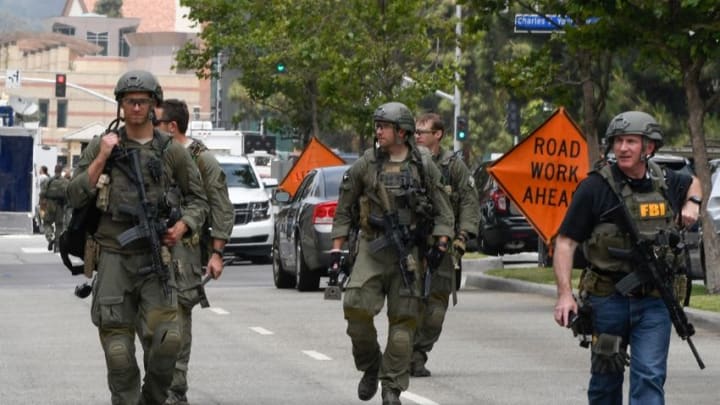UCLA Athletes Need Guidance on Social Media Use

After the news of the UCLA shooting broke, young UCLA athletes made flippant comments about the situation on Twitter.
Yesterday morning, in the midst of office calls and meetings, a colleague texted me a link to a Washington Post article. The link was shortened, so I could not tell what the article was about at first glance. We had just been discussing superhero movies, so I thought maybe the article was about Captain America: Civil War.
Related Story: Tragedy and Terror Strike UCLA
When I clicked on the link, I was redirected to a very recent article with a long headline. All I could read from it was “UCLA shooting.” I just could not read past that. I was sort of in a shock; My brain was still trying to process.
Shooting reported at Engineering IV at #UCLA. Go to a secure location and deny entry.
— Daily Bruin (@dailybruin) June 1, 2016
As the initial shock dissipated a bit, I realized I needed to learn more about what was happening. Instead of going directly to news sources, I did what most people do these days—I opened my Twitter account.
My timeline was inundated with tweets about the tragedy. Some tweets were from actual students and staff showing how they were barricading their doors for safety. Some tweets were from people sharing the news and expressing concern for loved ones who were on campus.
And some tweets were from UCLA athletes hoping their class or exams would be cancelled as a result of the news.
The issue of athletes struggling with their comments on social media is nothing new at this point. Even coaches have been getting in trouble recently for their misguided tweets (and losing recruits while they are at it).
The truth is that as early as in their junior year of high school, athletes can become high profile depending on their talent. Sometimes this is a lot of pressure on young athletes. They gain followers, both on and off Twitter, and what they say or do matters to people.
This is why I was extremely disappointed to see young athletes that I admire so much make light of the situation at UCLA. Mind you, the fact that two people had been killed had already been broadcasted (this was several hours before it was determined that the event was a murder-suicide). Several Twitter users implored athletes to consider what they were posting and how that would reflect on them.
To all #UCLA students and especially athletes who I'm seeing in my TL: today is not a laughing matter. Don't say something regrettable.
— The Mighty Bruins (@themightybruins) June 1, 2016
Seriously. Stop making jokes about cancelled classes and exams...there's already two victims this is people's lives https://t.co/Qz0EFfRdfa
— Gabby P (@peacelovgab) June 1, 2016
My disappointment towards these athletes did not last long though because I realized what we sometimes tend to easily forget—these athletes are young, they make mistakes, and they need guidance. I am not here to call out these athletes individually for what they did or did not do.
Rather, I am here to make an open call to our young Bruins and ask them to step up their game—both on and off the field. When you put on that Bruin uniform, you represent your brand as well as that of the UCLA community. Think about those who look up to you before tweeting. Think about how your tweets reflect on your image and those who stand beside you.
But this is also an open call to UCLA coaches to do their part as they help shape these young athletes.
This should not be done through public shaming or through cautionary tales that they may end like a certain former Browns quarterback.
But rather, it should be done through an understanding that mistakes will happen and good coaching can include helping young athletes manage their public image.
And just in case some demonstrative guidance is needed, here are some ways to respond to a tragedy affecting your school:
Wow some people are just sick in the head. Sorry to the victims. Our heats goes out to the families #UCLA
— Datone Jones (@DAT_ONE500) June 1, 2016
UCLA campus is contained and myself, the team, and my roommates all are safe. Praying for those who lost their life today and their families
— Jordyn Wieber (@jordyn_wieber) June 1, 2016
Be the best that you can be. “Failure is not fatal, but failure to change might be” – Coach John Wooden.
Go Bruins!